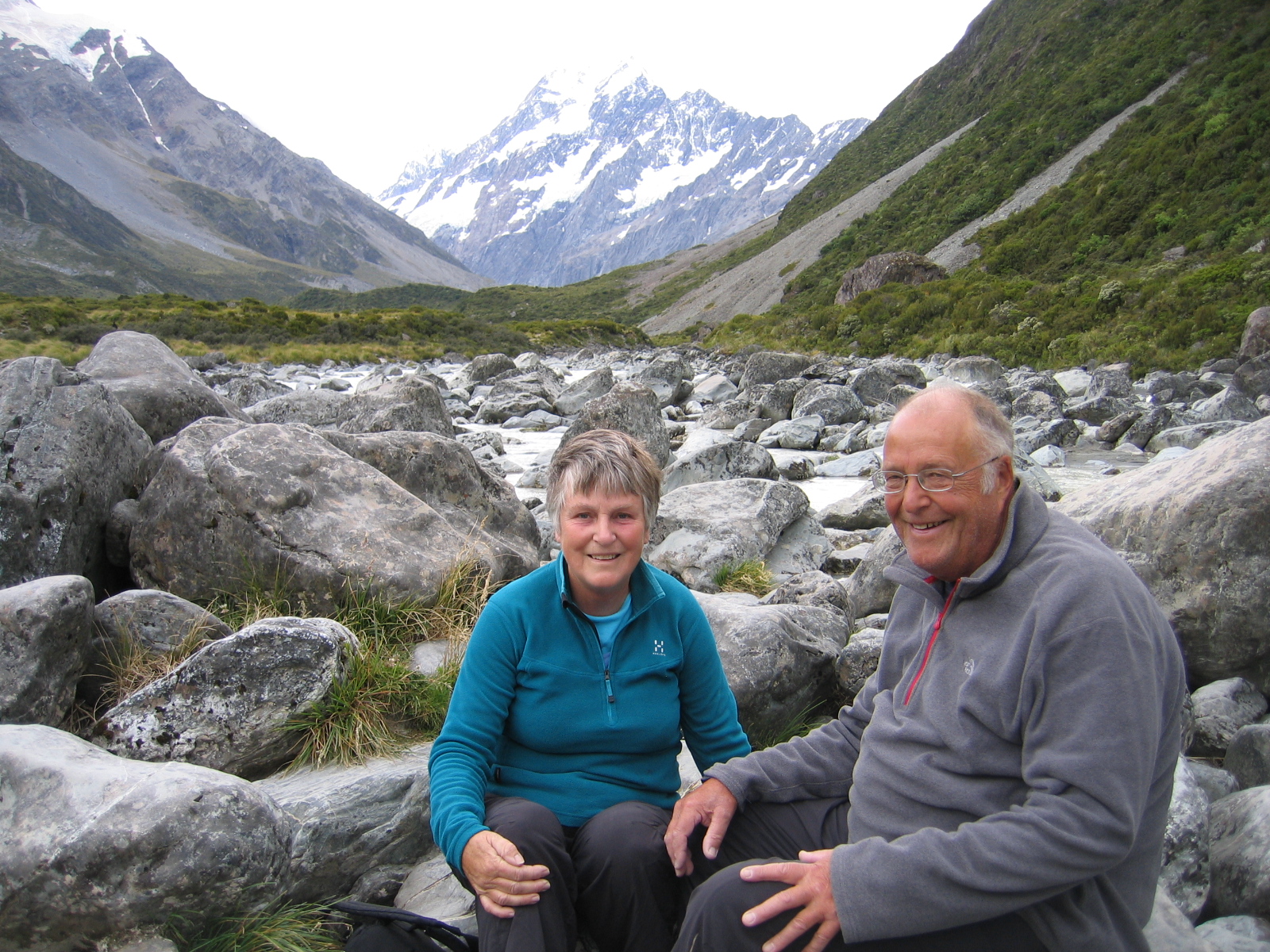When I was 68, I went on a safari holiday in Namibia. My wife and I were bouncing around in the back of a Land Rover for two weeks and I felt a soreness on my nipple. I thought it was just the seatbelt rubbing against it so I didn’t take much notice.
But I was still sore a month or so after we got back, and then I felt a small lump.
I knew men could get breast cancer, but I thought the likelihood of me having it was so low that I didn’t do anything about it. It wasn’t until a few months later when my wife playfully slapped me on the chest and felt the lump, which had grown substantially larger by this point, that I visited the GP.
My GP didn’t think it was anything to worry about either, but he referred me to the hospital just in case, and a biopsy then confirmed I had stage 3 breast cancer.
I was treated pretty quickly. Just two weeks after my diagnosis, I’d had a mastectomy, and then I went on to have chemotherapy and a lymph node clearance, followed by radiotherapy.
We have now completed work on our new state-of-the-art drug discovery centre to create more and better drugs for cancer patients. Here, we aim to develop a new generation of drugs that will make the difference to the lives of millions of people with cancer. Help us get research in the building off to the strongest possible start:
Going for genetic testing
With all the treatment over, I was getting back on the road to fitness and starting to move on, but it was then recommended I go for genetic testing.
Although we didn’t know anything further back in the family history, my sister had recently had breast cancer and so the team in the breast clinic, and the nurse in particular, were very keen for me to get checked out.
The nurse explained what it all meant, and I thought it would be a good thing to do. I had the test and, when the results came back, they showed I had the BRCA2 mutation.
I called my sister straightaway, and she immediately decided to get tested.
The BRCA2 gene was discovered by scientists at the ICR in the 1990s and found to increase the risk of prostate and ovarian cancer, as well as breast cancer in both men and women.
My sister and her daughter have now both tested positive for the BRCA2 mutation, and my niece has chosen to get a double mastectomy as a preventative measure, which I think is incredibly brave of her.

When I got my test results back, it was explained to me that I was now at an increased risk of developing prostate cancer, and my consultant encouraged me to join the IMPACT study, which offers regular screening to men carrying mutations in BRCA1, BRCA2 or the Lynch Syndrome genes MSH2, MSH6 or MLH1.
Since joining the study, I’ve been going for annual PSA checks, and just over two years ago it was discovered my PSA had gone up to 3.8, whereas normally it was 2.4.
Our scientists are renowned for their success in improving treatments for men with prostate cancer. Our wide-ranging programme of research has delivered huge benefits for patients – helping men to live longer, improving their quality of life and increasing cure rates. Learn more about the latest updates on our prostate cancer research:
Being diagnosed with prostate cancer
The result wasn’t that high but, because I was on the IMPACT study, I was referred straightaway – and I then got a diagnosis of prostate cancer.
I’ve since had 37 sessions of radiotherapy for my prostate cancer and am now on the hormone therapy goserelin, which I’ll have every 12 weeks for the next three years.
Being told I had the BRCA2 mutation effectively saved my life. I don’t think a PSA of 3.8 would have been enough for my GP to have referred me, and the prostate cancer could have been too far gone by the time it showed itself in symptoms.
I feel pretty lucky. Thanks to discovering I had the BRCA2 mutation, my prostate cancer was caught early, and I was able to receive the treatment I needed and get straight back to my normal life.
At the start of this year, my wife and I were travelling around New Zealand. The outbreak of coronavirus has obviously put a stop to any further travels since then, but we’re already planning our next adventures together and I’m looking forward to carry on living the life I want with her by my side.
Our researchers identified the BRCA2 gene, which enabled families with a history of cancer to be assessed for future risk, and laid the groundwork for developing novel forms of therapy for BRCA-associated cancers. Learn more about our work related to BRCA genes: